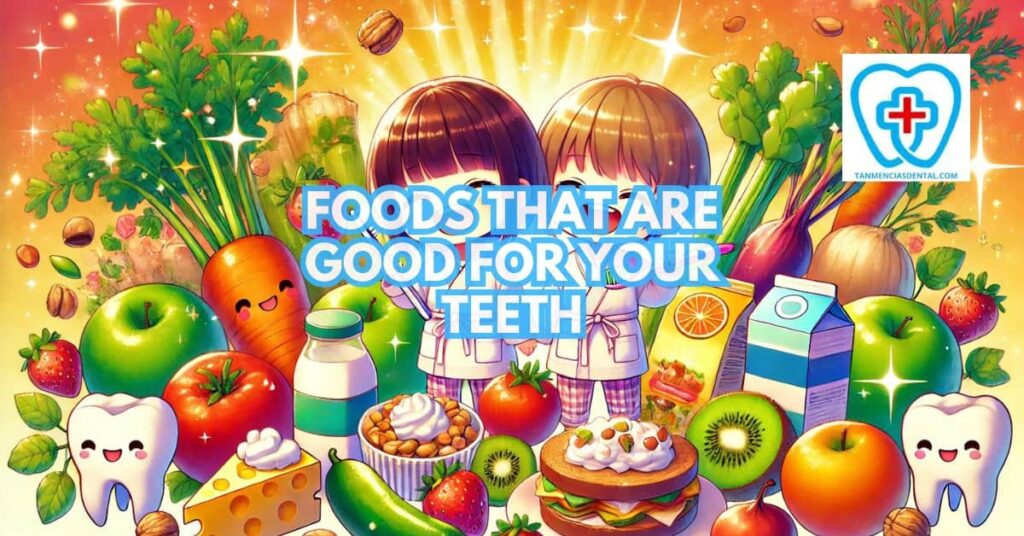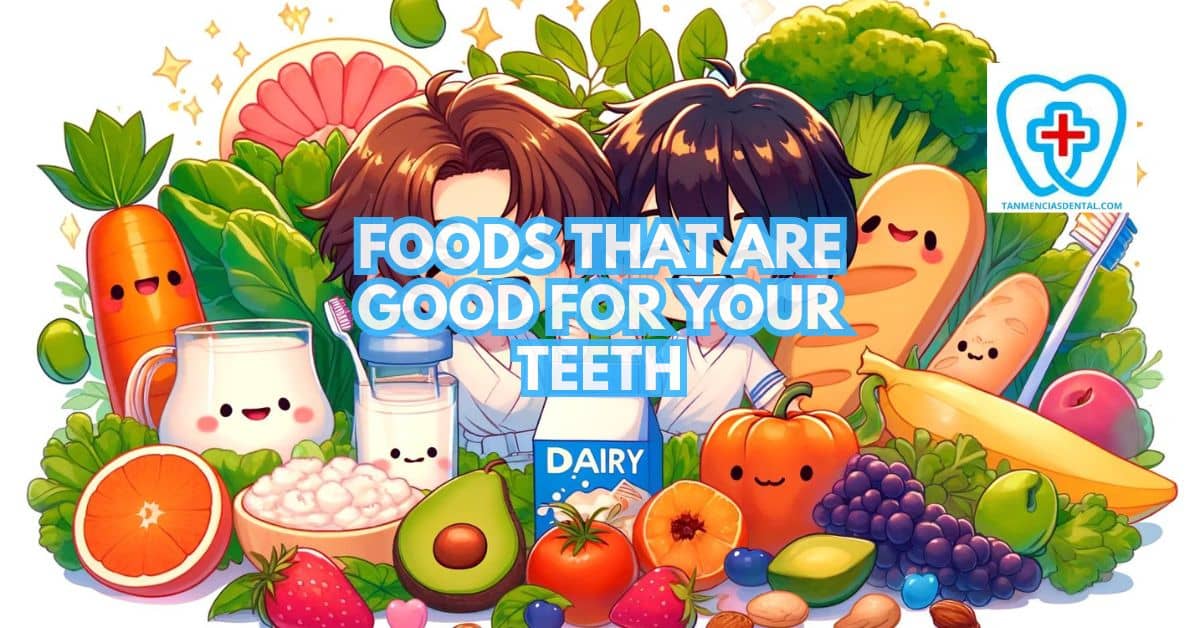Eating the right foods is important for keeping your teeth strong and healthy.
Foods that are good for your teeth provide essential nutrients like calcium and vitamins that help build tooth enamel and support your gums.
A balanced diet can also prevent dental problems such as cavities and gum disease.
By choosing a variety of nutritious foods, you can reduce the risk of tooth decay and maintain a bright smile.
Understanding which foods are good for your teeth helps you make better choices for your oral health.
1. Dairy and Alternatives: Building Strong Teeth with Calcium Powerhouses
Calcium is essential for developing and maintaining strong teeth, making dairy products some of the best sources available.
Cheese, milk, and yogurt provide a substantial amount of calcium and also contain casein, a protein that helps protect tooth enamel from acidic damage.
For those who do not consume dairy, fortified soy milk, almond milk, and tofu serve as excellent alternatives that are high in calcium.
These teeth-friendly foods are crucial for preserving both bone density and the stability of teeth.
Regular consumption of these high-calcium foods is key to maintaining optimal oral health.
By incorporating such foods into your daily diet, you can significantly boost your calcium intake, which is vital for strong, healthy teeth.
Choosing the best foods for dental health, particularly those high in calcium, ensures your teeth remain strong and well protected.
🦷 Why a Broken Tooth Smells Bad: Causes and Treatments
2. Probiotic Foods: Keeping Your Mouth Healthy
Probiotic foods such as yogurt, kefir, sauerkraut, and kimchi are great for your teeth and gums because they add good bacteria to your mouth.
These foods help by reducing the growth of harmful bacteria that cause cavities, gum disease, and bad breath.
The good bacteria introduced by probiotics create a healthy balance, which helps prevent common oral health issues.
Eating probiotic-rich foods regularly can make your teeth stronger and your gums healthier over time.
These foods also help reduce inflammation in your gums, lowering the chance of infections.
By including these foods for your teeth in your daily meals, you support a natural way to protect your smile.
Adding probiotics to your diet is an easy step toward better oral health and can complement brushing and flossing.
🦷 Making Brushing Teeth Fun for Adults
3. Crunchy Cleanliness: Fruits and Vegetables That Aid Brushing
Eating crunchy fruits and vegetables like carrots, apples, and celery can help clean teeth naturally.
The mechanical action of chewing these fibrous textures helps to scrape away plaque and food remnants from the tooth surfaces.
These foods also stimulate the gums, promoting blood circulation and reducing the risk of gum disease.
Additionally, their high water content helps to dilute the sugars they contain and increase saliva production, which protects against decay.
Incorporating these foods into snacks or as part of meals can contribute to natural oral hygiene throughout the day.
🦷 Are Energy Drinks Harmful to Your Teeth?
4. Fiber Fantastic: Promoting Oral Health with High-Fiber Foods
Foods high in fiber, such as whole grains, nuts, and legumes, are essential for maintaining good oral health.
The increased chewing required to break down these foods stimulates saliva production, which naturally cleanses the mouth and helps control plaque and bacteria.
The low sugar content in these fiber-rich foods also significantly reduces the risk of developing cavities.
Furthermore, a well-functioning digestive system, supported by a fiber-rich diet, promotes healthier gums and oral tissues.
Including these nutritious staples regularly in your diet not only helps maintain overall health but also ensures a clean and healthy mouth.
Consuming these foods good for teeth can also help strengthen your teeth by preserving the enamel and preventing dental erosion.
By integrating these beneficial foods into your daily meals, you contribute to long-lasting dental health and a vibrant smile.
🦷 Why a Comprehensive Oral Evaluation Matters

5. Vitamin Powerhouse: Essential Vitamins for Healthy Teeth and Gums
Vitamins are fundamental in maintaining oral health, where Vitamin C helps fortify the gums and protect against gingivitis, and Vitamin D facilitates the absorption of calcium for strong teeth.
Foods rich in Vitamin C, such as citrus fruits, strawberries, and bell peppers, help maintain the integrity of gum tissue and prevent inflammatory diseases.
Vitamin D can be obtained from fatty fish, fortified dairy products, and exposure to sunlight, enhancing calcium metabolism and oral health.
A deficiency in these vitamins can lead to dental problems, including gum disease and tooth decay.
Therefore, ensuring a diet rich in these vitamins is crucial for sustaining healthy teeth and gums.
🦷 Natural Remedies for Toothache Relief
6. Water Works Wonders: Staying Hydrated for Optimal Oral Health
Water is the best drink for maintaining oral health, as it helps wash away food particles and dilutes the acids produced by oral bacteria.
Drinking fluoridated water can also provide additional benefits by helping to prevent tooth decay and strengthen tooth enamel.
It’s recommended to drink water after every meal to help clear away leftover food and sugar from the teeth and gums.
Hydration also supports saliva production, which is vital for oral health, as saliva helps neutralize acids and repair early signs of tooth decay.
Keeping hydrated throughout the day is a simple yet effective step towards maintaining a healthy mouth.
🦷 How Much Does Braces Removal Cost?
7. Sugar Scrutiny: Limiting Sugary Foods and Drinks to Protect Your Enamel
Reducing sugar intake is critical for dental health, as sugary foods and beverages are primary contributors to tooth decay.
When sugar is consumed, it interacts with bacteria in the plaque to produce acid that attacks enamel, the tooth’s protective outer layer.
To protect your teeth, choose natural sugars found in fruits, which come with fiber that mitigates the effects of sugar on the teeth.
It’s also beneficial to limit snacks that contain high amounts of added sugars and to check food labels for hidden sugars.
By minimizing sugar consumption and being mindful of when and how much sugar you eat, you can significantly reduce the risk of cavities.
🦷 Finding Emergency Dental Care on Sundays
8. Snacking Savvy: Choosing Healthy and Tooth-Friendly Options
Smart snack choices can influence oral health significantly.
Opt for snacks that are low in sugar and high in protein and fiber, like raw vegetables, nuts, and cheese, which can help protect tooth enamel and stimulate saliva production.
Frequent snacking on sugary or acidic foods can lead to more frequent acid attacks on your enamel, so timing and choice are crucial.
In addition, integrating such healthy options reduces the opportunity for harmful bacteria to thrive in your mouth.
Thus, choosing the right snacks not only contributes to general health but also aids in maintaining a healthy mouth.
🦷 Dental X-Rays in Marikina: What You Need to Know
9. Beyond Brushing: The Power of Leafy Greens for a Healthy Mouth
Leafy greens such as spinach, kale, and Swiss chard are loaded with calcium, vitamins, and minerals that are key for oral health.
These greens contain folic acid, a type of B vitamin that has potential health benefits, including possibly treating gum disease in pregnant women and promoting cell growth throughout the body.
Their high vitamin content, especially vitamins A and C, helps improve enamel health and combat infections in the mouth.
Incorporating leafy greens into your diet can be easy; add them to salads, smoothies, or as a cooked side dish.
By consuming these nutrient-packed vegetables, you not only support your overall health but also provide essential nutrients for maintaining a healthy mouth.
🦷 Top Foods for Better Gum Health
10. Mindful Munching: How Eating Habits Impact Dental Health
The manner and frequency of eating can significantly impact dental health.
Eating frequent meals and snacks can expose teeth to constant acid attacks, increasing the risk of enamel erosion and cavity formation.
Being mindful about eating habits, such as avoiding snacking on sugary or starchy foods and choosing nutritious, whole foods, can protect your teeth.
It’s also important to eat balanced meals that satisfy nutritional needs and reduce the urge to snack frequently.
By adopting mindful eating practices, you can effectively manage your oral health and reduce the likelihood of dental issues.
🦷 Why Children’s Orthodontic Care is Essential
11. Unsweetened Tea Time: A Refreshing and Potentially Tooth-Friendly Drink
Unsweetened black and green teas are excellent beverages for oral health due to their fluoride content and polyphenols that reduce plaque.
These teas fight bacteria and lower the acidity of saliva and plaque, which are major contributors to tooth decay.
Drinking tea without added sugar can decrease the risk of cavities and provide a soothing, antioxidant-rich beverage option.
Regular consumption of unsweetened tea may also inhibit the growth of bacteria associated with gum disease and bad breath.
Thus, swapping sugary drinks for unsweetened tea can greatly benefit your oral health while refreshing you.
👨⚕️ Conclusion
Adopting a diet that includes foods good for your teeth is a vital part of maintaining dental health.
By understanding the effects of different types of foods on your teeth and gums, you can make informed choices that enhance your oral hygiene routine.
Regular consumption of calcium-rich dairy or alternatives, fiber-filled fruits and vegetables, vitamins, and water will greatly contribute to your dental health.
Remember, while diet plays a crucial role, it’s equally important to maintain good brushing and flossing habits and visit the dentist regularly.
Embrace these foods as part of your daily diet and enjoy the benefits of a healthier, brighter smile.
😊 Self-Promotion
Visit us at Tan-Mencias Dental Clinic in Parang, Marikina City, where your smile and dental health are our top priorities!
Whether you have questions, need a routine checkup, or require specialized dental care, we’re here to help.
Feel free to call us at 9171451074, leave a message on our Facebook page, or reach out via our website’s contact form.
Our friendly team is committed to providing you with a comfortable and positive dental experience.
Let us take care of your dental needs with expertise and care, and discover why our patients love coming back!

